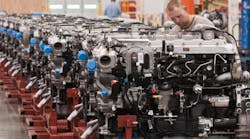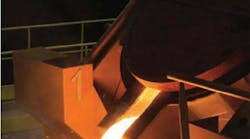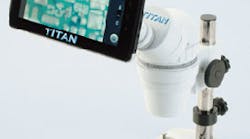Aras Corp., which develops and supplies software for Product Lifecycle Management (PLM), is supplying its PLM and Advanced Product Quality Planning (APQP) process automation platforms to Nemak S.A., the aluminum automotive-components foundry group.
According to Alejandro Valdez, Nemak’s product engineering and CDT operations manager, "The ability to modify the Aras solution without programming means that we can quickly and cost-effectively improve our processes to capitalize on business opportunities."
Aras explains that Nemak is automating a number of its "business critical" processes, for product and manufacturing process definition. This includes tooling and asset selection, for which an Aras product has been tailored to fit competitive practices. "The management of product, process, and plant-related information online will improve communication with customers and suppliers as well as increase coordination and control throughout NEMAK's global manufacturing facilities," Aras states.
The Aras software supports Nemak’s proprietary product-development and launch processes, complying with the auto industry’s APQP program-management methods and Production Part Approval process (PPAP). Aras provides status updates and metrics on costs, quality, and schedules in accordance with specific automotive customer requirements for APQP/PPAP. It also manages engineering changes with workflow for improved cycle-time efficiencies. Resource loading and capacity planning for project personnel provide improved accuracy for program planning.
"We entered into our PLM selection process with a long list of requirements, including product data management, engineering change management, project control and oversight, cost management and APQP compliance," said Victor C. Moreno, PLM project manager at Nemak. "We chose Aras because of demonstrated strength in both PLM and the automotive requirements, and because the flexibility of the solution allowed us to easily adapt it to our proprietary competitive processes while remaining compliant to industry standards."



